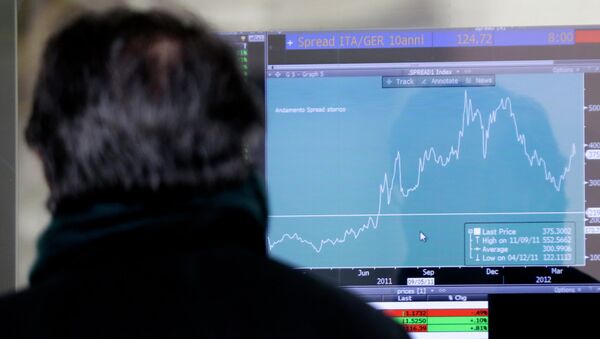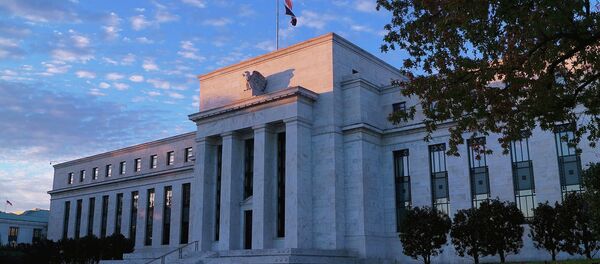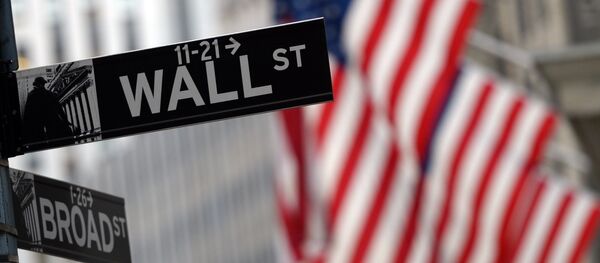Governmental bonds, real estate and mortgage-backed debt all plunged in their biggest decline in roughly three years, pushing yields up and triggering a greater volatility in the market.
Equity markets, however, have been in the red recently due to elevated uncertainty over the upcoming US election. As capital flees financial markets, investment in real economy has increased due to the higher confidence stemming from the upbeat GDP figures on both sides of Atlantic.
Besides, the allegations the European Central Bank (ECB) might commence wrapping up its bond-buying programme as soon as in spring 2017, added to the sentiment that investment in real economy might prove more profitable over the medium-term.
Global bonds markets, including sovereign debt, corporate bonds and commercial mortgage-backed securities, have declined an average of 2.9pc between October 1 and October 29, Bloomberg Barclays Global Aggregate Index has shown. Such a significant slide last occurred in May 2013, when the US Federal Reserve first signalled its then-looming wrap-up in the bond-buying program (quantitative easing), which commenced in autumn that year.
"There's a lot of activity taking place, but the middle of the rope is not moving", Mike Bailey of FBB Capital Partners said. "Bond investors that were worried the UK and Europe were going off a cliff got a bit more relaxed."
In Europe, both inflation and growth have gained momentum this outgoing month, and the ECB has signalled its willingness to curb the excessive monetary stimulus measures. Central banks across the advanced economies have acknowledged the limits of stimulus policies, and several years into the post-Great Recession recovery, regulators in North America and Europe have called for structural reforms.
"Portfolios, banks, and hedge funds stocked up on these government bonds on the belief that global central banks would be buying them for years," Tom di Galoma of New York-based Seaport Global Holdings said. "Now, there has been a shift in central-bank policy globally."
International corporate bonds saw a massive selloff this outgoing week, retreating an average of 0.6pc. Average yield on corporate debt has climbed to 2.39pc, its highest since June.
Real estate stocks dropped 2.4pc on the S&P 500, suggesting property assets, another safe haven segment of the market, have become less profitable amid the emerging new opportunities.
"Earnings season in full flow, and the numbers are not that bad," Jeroen Blokland of Robeco, asset management firm, said. US stocks, he pointed out, might rebound, should corporate earnings exceed expectations.
Year-to-date, global bonds have earned an average of 6pc due to the rife concern accompanying the rout in US stocks early in the year, Brexit concerns in the summer, the US election cycle, international currency manipulations and slow global growth. The reverse in bonds reflects a stabilization in major economies as anxiety subsides.
"I think you're seeing a tug of war between earnings… and rising yields. I think the rise in yields is a bit of a correction," Jim Davis of U.S. Bank said.



